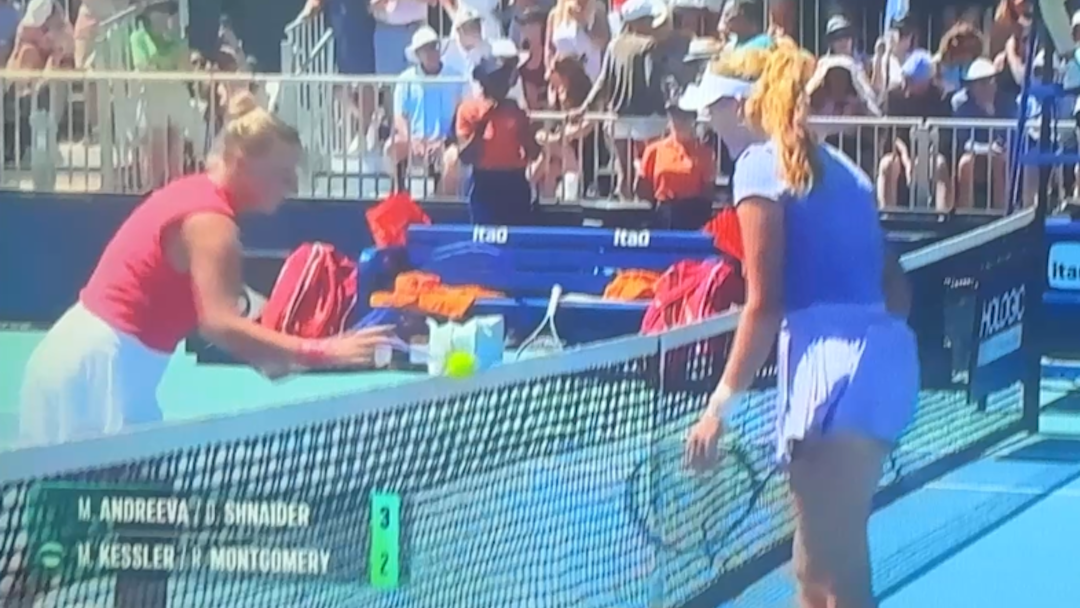When it comes to strategic initiatives, nothing makes me happier than a well-structured, data-based decision process. Organizations that use evidence to make smarter strategic choices generally achieve better outcomes. At the same time, data-based decisions are fraught with peril. There is always a risk that the data on hand doesn’t tell the full story or is otherwise flawed. A little information in the wrong hands can be scary.
As a case in point, the USTA Sections might query for data on defaults across all USTA League matches played under their purview. I would be willing to wager that the results would show that singles lines are defaulted at a much higher rate than doubles. That could create a leap in logic that USTA League players prefer doubles to singles. That could precipitate a decision to reduce or eliminate singles lines.
In this case, the data only tells part of the story. Yesterday I highlighted the mathematics behind why it makes sense to default a singles line over doubles. When a team is one player short, defaulting the singles line is the obvious move because that only denies a playing opportunity to one other player. A doubles default means three other people don’t get to play.
Additionally, the “ALLOWABLE DEFAULTS AT ALL CHAMPIONSHIPS” table in the 2024 USTA National League Regulations suggests that singles lines have precedence for defaults. While I will concede that many USTA League players prefer not to play singles, other factors are clearly influencing the data.
At the USTA Texas Annual Meeting earlier this year, there was discussion that whole team defaults were sharply up over the past 12 months. It is believed it is primarily due to Captains not understanding the rules. The majority of lines have to be played to avoid a whole team default. In four-line formats, that is three matches rather than two. That apparently surprises a lot of people.
Additionally, the USTA League National Regulations contains a provision designed to address the situation where the majority of lines are not played due to reciprocal defaults from each team.
Each Sectional Association shall establish procedures to determine the 1) flight standings in the event of a team default or double team default and 2) actions to take when the combination of individual defaults given by the two teams in the team match results, or would result, in a situation where the majority of the individual matches are not played. If no such procedures have been established, the match will result in a double team default.
2024 USTA League National Regulations, 2.01C(3) final paragraph
The USTA National Regulations state that it is a double default unless the Section League Procedures state otherwise. For USTA Texas, the Sectional procedures do not address that particular scenario, so this is another way to accidently back into whole team defaults for both teams.
To continue this thought exercise, the following excerpt is how USTA Texas handled the delegated authority for whole team defaults in general. Essentially, Texas pushes down the responsibility to the local league organization.
Scoring of Full Team Defaults. If a local league does not have a specific rule in place to cover a full team default, it must follow the National/Sectional Championship Regulation 2.03L, which states: “If a team defaults an entire team match for any reason during round robin play, that team is ineligible to continue play at that championship. All matches of the defaulting team already played shall be null and void when determining standings but will be used for individual player ratings and individual player advancement purposes. If all teams with a mathematical chance to advance have played the defaulting team in good faith, those matches shall stand as played when determining standings. The Sectional Association may impose further penalties on the defaulting team.” If there are several round robins within the local competition, this guideline concerns the round robin in question only.
USTA Texas League Operating Procedures,
Since we have already been discussing local league Regulations of the Greater Fort Worth Tennis Coalition (GFWTC) this weekend, I drilled down on that local rulebook to round out this thread.
8M. Defaults: A team must play the majority of lines in a match. (USTA Reg 2.01C(3).) 4/5 Line league-must play 3; 3-line league, must play 2 lines. Team is subject to grievance and scores pulled for all matches in the league if the majority of lines are not played. Any team defaulting an entire match will have all players on the roster suspended from all Fort Worth USTA Tennis leagues for a period of 11 months from the start date of the league the infraction occurred. In the case of an extenuating circumstance, the suspension may be appealed to the GFWTC Grievance Committee.
2024 GFWTC League Regulations, 8M
This would be an example of why I frequently characterize the GFWTC Regulations as somewhat draconian. Suspending an entire team from all League play for a year is rough, especially when that whole team default may have arisen from a Captain not realizing that three lines had to be played rather than two in four-line formats.
If all players were fully aware of this rule, they might be reluctant to join a team to bail them out for one match. A team that is struggling with numbers one week is likely to have a recurrence of the issue in the future when the Good Samaritan sub isn’t available. In other words, a player could register with the intent to play only one week to save a team from a whole team default only to suffer that fate along with the entire roster later in the season anyway. It’s harsh.
When I was in the neighborhood of defaults within the GFWTC League Regulations, I happened to stumble across this gem of a rule.
8K. Defaults: If a player fails to appear and no substitute is available, the default will start from the bottom up for singles and/or doubles. The team receiving the default cannot move players.
2024 GFWTC League Regulations, 8K
This one is nuts. When a team forfeits a line at Sectionals and Nationals, the team that receives the default has the right to view the other team’s lineups and make adjustments. I am curious about the reasoning and sequence of events that induced the creation of a rule that overrides that basic practice at the local level.
I think this is a terrible rule for local play, as it could cause a player to receive a default when a match was needed to reach minimum qualification standards for playoffs and beyond. Additionally, there may be other legitimate reasons to adjust the lineup. For example, some players may have traveled great distances to the match site while others live nearby. A person with a pressing schedule commitment might be more than happy to step aside. Frequently, the captain volunteers to take one for the team and sit out the match.
I suspect that most captains are not aware of this rule and that it is regularly not followed when a team has a no-show.
There are many rules and Regulations governing defaults in USTA League competition that cascade from the National and Sectional organizations down to the Local levels. The onerous nature of some of these rules is arguably a direct result of the grievance culture that permeates that form of recreational-competitive tennis.
Tomorrow, we will round out this weekend by examining defaults in the tournament setting. While there are considerably fewer rules and Regulations in that context, tournament tennis is not without its own issues when it comes to defaults.
- 2024 USTA League National Regulations, USTA Resource Document, September 19, 2023.
- 2024 Texas Operating Procedures, USTA Resource Document, undated.
- 2024 GFWTC League Regulations, Greater Fort Worth Tennis Coalition, Revised 11/2023.



